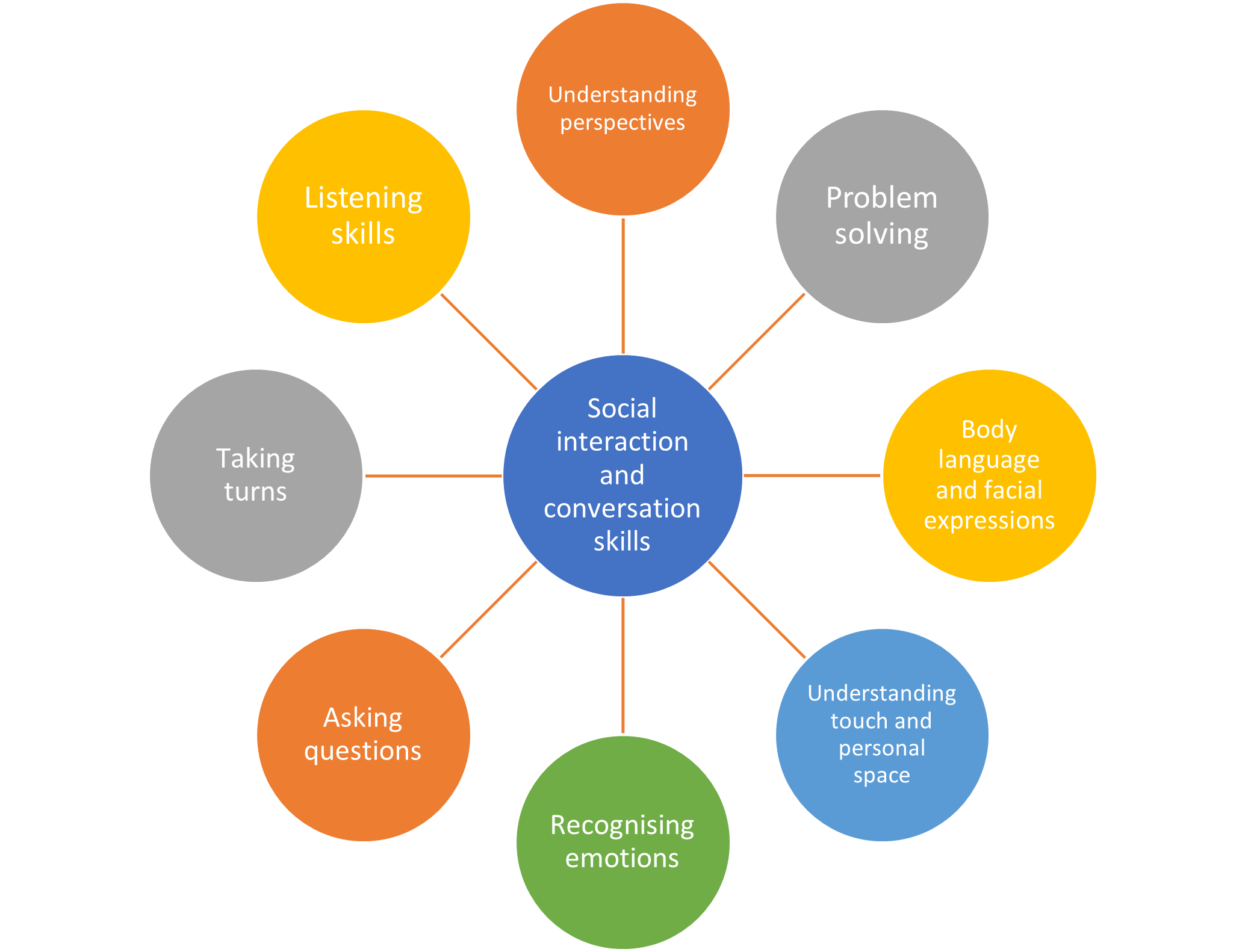Young people require many skills to help them succeed in the classroom and school environment. Being able to communicate successfully is a fundamental skill for building self-esteem, accessing education, relating to others, developing friendships and being independent.
It involves many different skills, which include the following:

What can you do in the classroom to support?
- Be as clear as you can – Use specific / detailed wording as far as possible. Instead of “Be respectful”, use: “Speak quietly in class” or “Use kind words”.
- You are the perfect model for your students! Your attitude and behaviour set the tone for their learning. Model behaviours you would like to see and foster in them.
- Model the thinking involved in carrying out a skill. For example, “I really want to go first but I’ll let John take his turn this time, and I’ll go first in the next game.”
- Talk about what is involved in specific social skills through whole-group discussions, for example:
- Turn taking: “What does turn taking look like?”, “What behaviour will we see/ hear?”
- Personal space: “What is personal space?”, “When can we remember personal space?”
- Support new learning with pictures / visuals as far as possible.
- When learning about emotions, use pictures of faces so students can identify the corresponding emotion.
- Use pictures to represent new concepts like turn taking, sharing, good listening.
- Provide opportunities for practice and role play – You can facilitate social skills practice by providing opportunities for natural social interaction. Role play helps students to:
- Practise communication and social skills in a safe, non-threatening environment
- Realise different perspectives and develop empathy by seeing how their decisions might affect others. Solve social problems and explore new ideas.
- Reinforce positive behaviours – Notice your students privately and/or publicly, recognising any positive behaviours or social communication they show.
- Classroom jobs – Give students opportunities to practice and demonstrate a range of social and communication skills: facing communication partners, asking questions, listening, asking for help, problem solving, sharing, compromise. It also develops confidence, responsibility and teamwork.
- Team or group work – Incorporate some games / quizzes or add group work into your lesson plan if you can. Split students into pairs or small groups to get to know each other, work and play together. This will help them to meet in controlled settings and develop relationships, ask questions, talk about themselves, and listen to others.
- A social story is a brief story that you can use to help students who are having trouble with social and/or emotional situations or who are having trouble following rules such as cleaning up, managing time, or handling bullying. Social stories also use explicit language that you and your students can memorise and use as self-talk, or as a way of self-soothing or recalling strategies.
- Helping students to problem solve independently is a vital part of successful social interaction and communication. You can help by having the class think of solutions that can be used in many different conflicts/problems. Students can draw a symbol or picture to represent each solution. Record each of the solutions and add the symbols. Post the problem-solving ideas in a visible spot in the classroom.
Resources and advice:
- Visual timetables and schedules
- Social Skills Toolbox
- Social Stories and Comic Strip Conversations:
- Twinkl (some free content as well as a paid subscription)
A new book has been published outlining an inclusive teamwork programme, aiming to support all children in developing rapport, effective communication and problem-solving skills. Inclusive Teamwork for Pupils with Speech, Language and Communication Needs.
*These are universal strategies to help children develop their communication skills. Should you require more specific support please seek appropriate professional advice.
For more information about local services please contact: cognus.therapies@cognus.org.uk
